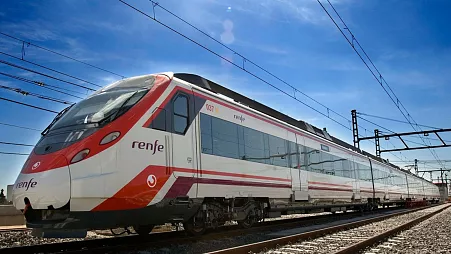Spain Encourages Train Travel Over Short-Haul Flights for Environmental Gain

In a pioneering move to combat climate change, Spain is proposing a ban on short-haul domestic flights where a train journey of under 2.5 hours serves as an alternative. This initiative mirrors France’s effort to reduce carbon emissions by encouraging train travel for short distances. While the implementation date and the specific flights affected remain undetermined, the initiative is a key component of Spain’s ambitious 2050 climate action strategy.
Spain, responsible for 9% of the European Union’s greenhouse gas emissions, is targeting flights between major cities such as Barcelona, Valencia, Alicante, Seville, and Madrid, primarily serviced by Iberia, Vueling, and Air Europa. Although the plan exempts international connections through hub airports, it has sparked debate among government officials concerned about the impact on business and commerce.
However, travel experts suggest minimal disruption for leisure travelers. “For most travelers, the impact of this is probably very low,” says Seth Miller, founder of PaxEx.Aero. The move is expected to offer a more enjoyable travel experience through Spain’s efficient rail system, even as airlines continue to cater to passengers needing connections for overseas flights.
The proposal also includes a potential clampdown on private jet usage, responding to a Greenpeace report highlighting a significant increase in private flights from Spanish airports, which significantly contribute to carbon emissions.
Spain’s initiative aligns with broader European efforts to promote sustainability and reduce the aviation sector’s environmental footprint. With the European Union phasing out free carbon emission permits for airlines by 2026, the cost of emissions will directly affect airline operations, possibly leading to higher ticket prices for consumers.
Countries across Europe are exploring measures to discourage air travel in favor of greener alternatives. Denmark, for instance, will introduce a “green tax” on air travel from 2025 to support sustainable aviation practices. Lufthansa has launched “green fares” incorporating sustainable aviation fuel and supporting climate protection projects.
Germany’s collaboration between the Aviation Association and Deutsche Bahn aims to offer more high-speed train connections, providing a viable alternative for approximately 20% of air travelers and potentially reducing domestic flight carbon dioxide emissions by about 17%.
As France and now potentially Spain take steps towards limiting short-haul flights, other nations may be encouraged to consider similar policies. “Being the first to implement a policy like this comes with notable risks,” Miller notes. “But it can help other governments see that a shift is possible, and without catastrophic side effects.” This collective European effort marks a significant step towards achieving climate neutrality by 2050, balancing the need for mobility with environmental stewardship.
